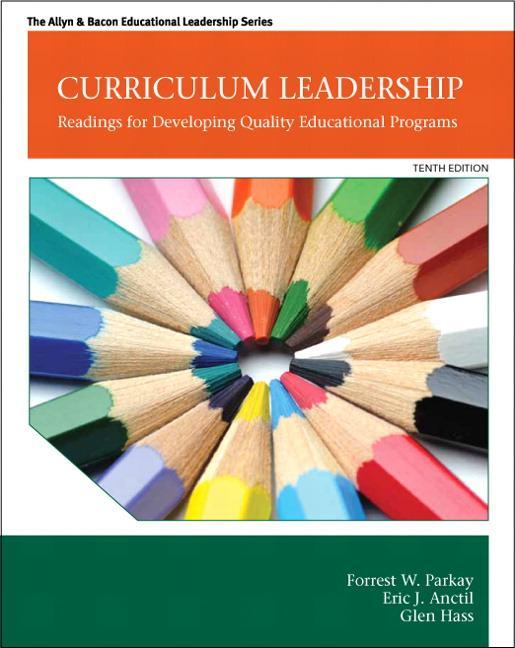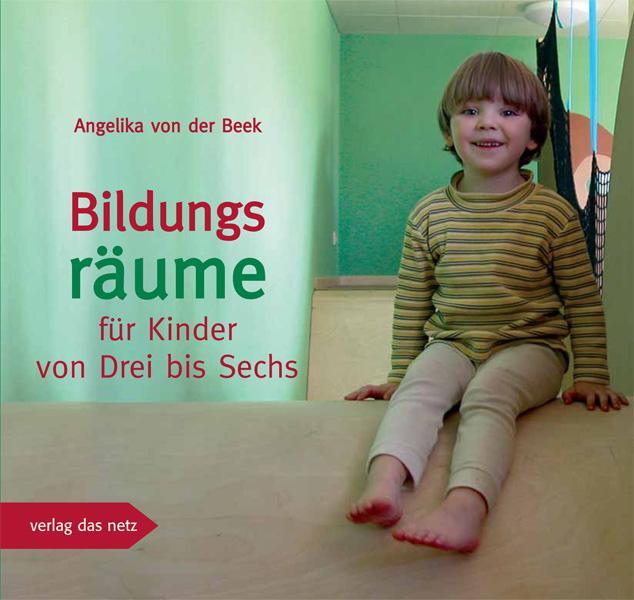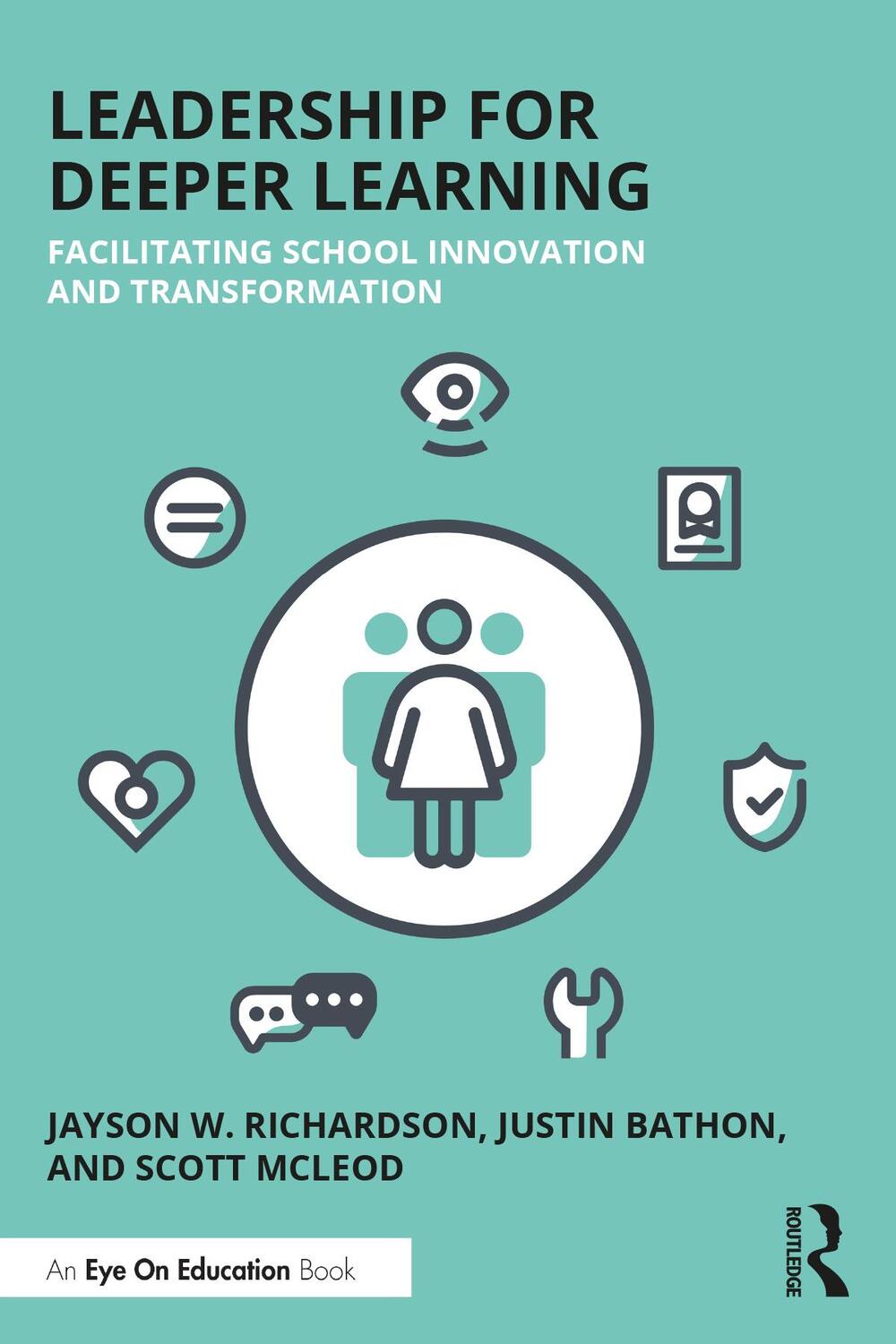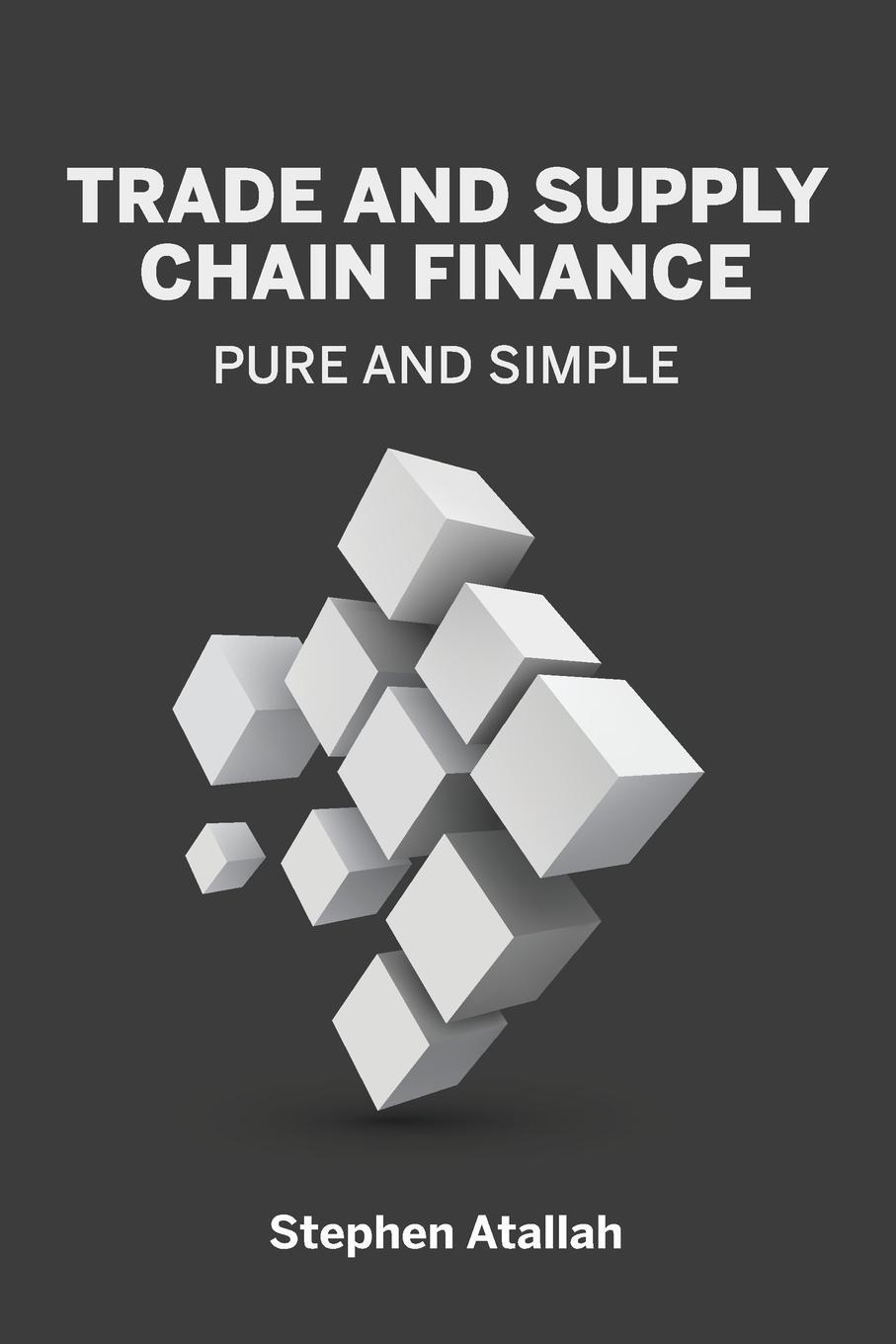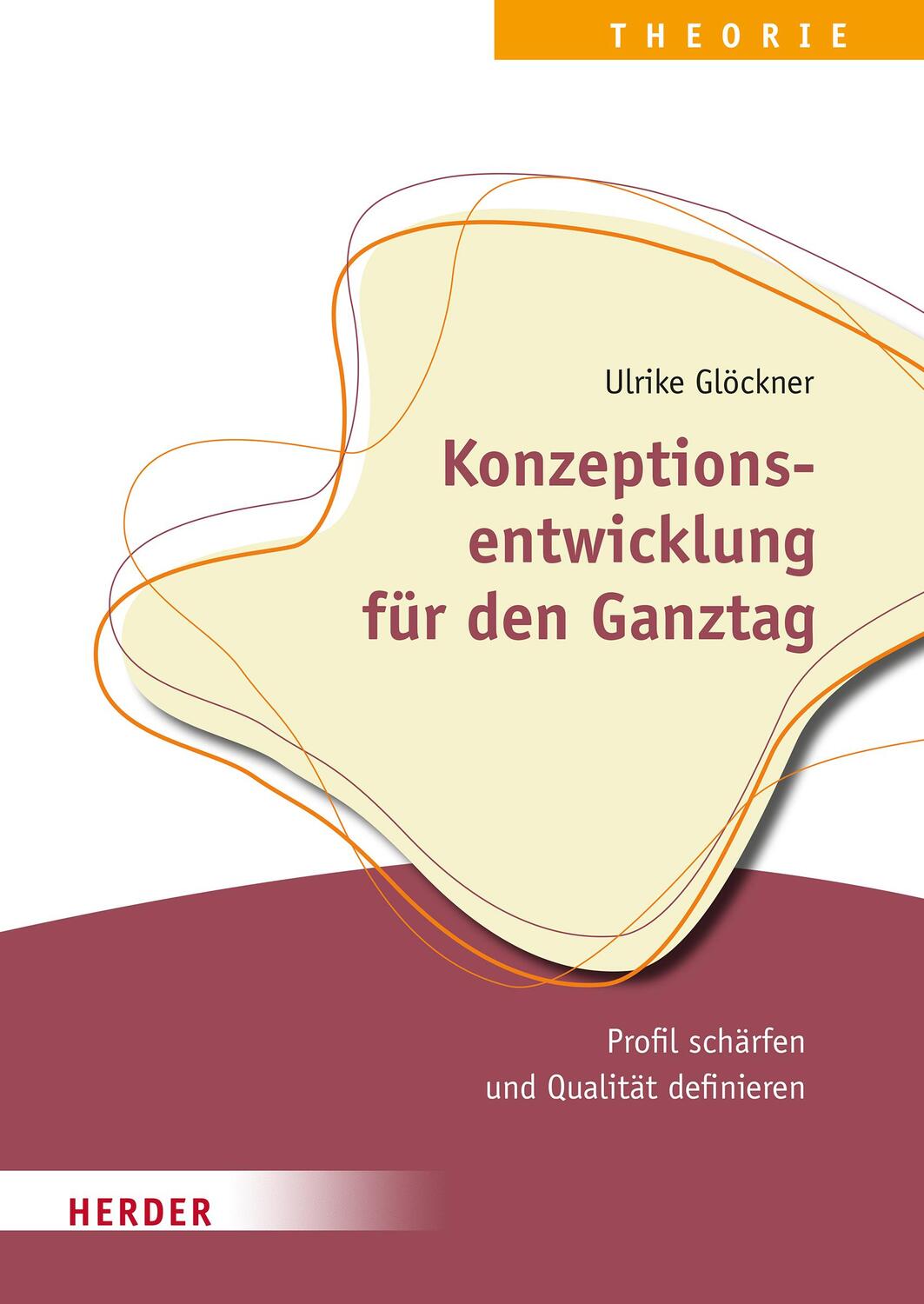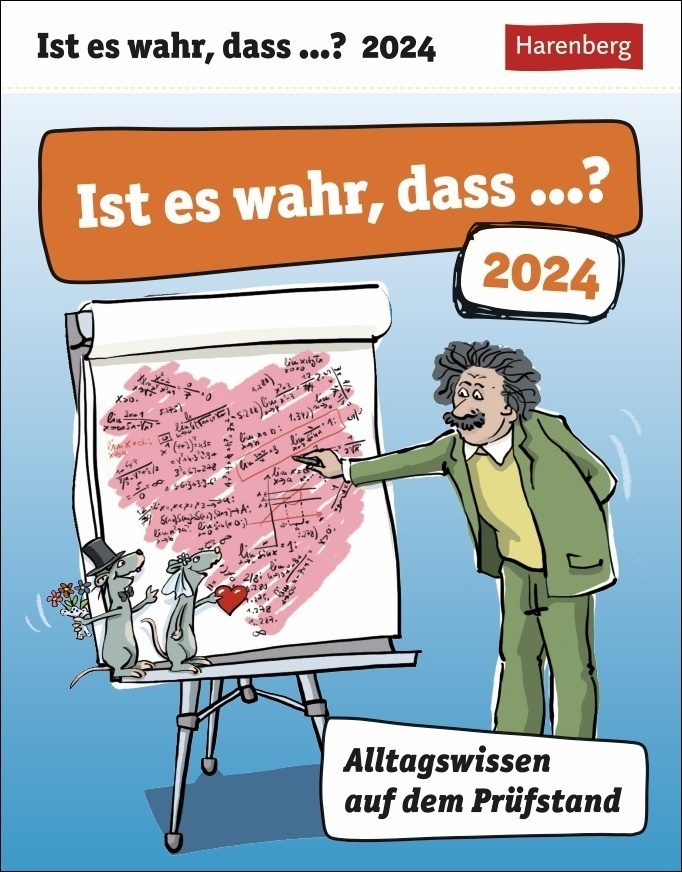196,50 €*
Versandkostenfrei per Post / DHL
Aktuell nicht verfügbar
For courses in Educational Leadership, Curriculum Development and Curriculum Planning.
A premier collection of high-quality articles from leading voices in education, curriculum planning, and development.
Curriculum Leadership: Readings for Developing Quality Educational Programs, 10/e combines high-quality articles with cases that illustrate pre-K through high school curriculum development in action. Featuring 72 articles from historic greats and current leaders, this book balances seminal works with contemporary perspectives. New to this edition are 38 recently published articles spotlighting technology, Common Core State Standards, high-stakes testing, and assessment. Each chapter is filled with background theory, articles, case studies and essays that show school leaders how to plan quality educational programs.
For courses in Educational Leadership, Curriculum Development and Curriculum Planning.
A premier collection of high-quality articles from leading voices in education, curriculum planning, and development.
Curriculum Leadership: Readings for Developing Quality Educational Programs, 10/e combines high-quality articles with cases that illustrate pre-K through high school curriculum development in action. Featuring 72 articles from historic greats and current leaders, this book balances seminal works with contemporary perspectives. New to this edition are 38 recently published articles spotlighting technology, Common Core State Standards, high-stakes testing, and assessment. Each chapter is filled with background theory, articles, case studies and essays that show school leaders how to plan quality educational programs.
Forrest W. Parkay is Professor of Educational Leadership and Higher Education at Washington State University. He was Professor of Educational Leadership at the University of Florida for eight years and at Texas State University for five years. Forrest received his B.A. and M.A. degrees in English education from the University of Illinois-Urbana. He earned his Ph.D. in education at the University of Chicago, and he is a graduate of Harvard University’s Management Development Program (MDP). For eight years, Forrest taught at DuSable High School on Chicago’s South Side, and he served as Chairman of DuSable’s English Department for four years.
Forrest is the author or co-author of more than 60 refereed journal articles and several books, including Becoming a Teacher (Pearson, 2013). His research has appeared in the field’s leading peer-reviewed journals, including Phi Delta Kappan, American Journal of Education, and Educational Administration Quarterly.
A former Fulbright Scholar at Kasetsart University’s Center for Research on Teaching and Teacher Education, in Thailand, Forrest has facilitated educational reform programs and conducted cross-national research in China, Thailand, Korea, and Pakistan. He has been a Visiting Professor at Beijing Normal University and at Assumption University in Thailand.
Forrest and his wife, Phensri, enjoy traveling, yoga, classic cars, kayaking, and photography. Forrest is the proud father of four daughters: Anna, Catherine, Rebecca, and Anchitta.
Eric Anctil is Associate Professor of Education and the Director for Innovation at the University of Portland. He is the author of many books and articles on education including, Selling Higher Education: Marketing and Advertising America’s Colleges and Universities. His research and scholarship broadly centers on K-20 education and the nexus of media, technology, and the curriculum.
PART ONE Bases for Curriculum Leadership 1
1 Goals and Values
Focus Questions
Definitions of Curriculum
Differences between Curriculum and Instruction
A Comprehensive Definition ofCurriculum
Bases of the Curriculum
Social Forces
Theories of Human Development
The Nature of Learning and Learning Styles
Emphasizing Curriculum Bases
Curriculum Criteria
Curriculum Goals
Values in Curriculum Planning
Criterion QuestionsGoals and Values
References
Principals as Cultural Leaders
Karen Seashore Louis & Kyla Wahlstrom
Leadership for Learning: Lessons from 4 Years of Empirical Research
Philip Hallinger
Perspectives on Four Curriculum Traditions
William H. Schubert
Democracy at Risk
William E. White, Richard van Scotter, Michael H. Haroonian, & James E. Davis
The Organization and Subject-Matter of General Education
Robert M. Hutchins
The Case for Essentialismin Education
William C. Bagley
The Case for Progressivism in Education
William Heard Kilpatrick
Traditional vs. Progressive Education
John Dewey
Leaders' VoicesPutting Theory into Practice
5 Telltale Signs You're Becoming a Teacher Leader
Marsha Ratzel
Learning Activities
Critical Thinking
Application Activities
Field Experiences
Internet Activities
2 Social Forces: Present and Future
Focus Questions
Curriculum and the Future
Social Forces and the Individual
Levels of Social Forces
Concepts from the Social Sciences
Futures Planning
Criterion QuestionsSocial Forces
References
What's Wrong with Accountability by the Numbers?
Richard Rothstein
Grading Education: Test-Based Accountability Can't Work, But Testing Plus Careful School Inspections Can
Richard Rothstein, Rebecca Jacobsen, & Tamara Wilder
High-Stakes Testing and Accountability as Social Constructs across Cultures
Raymond V. Padilla
The Three A's of Creating an Inclusive Curriculum and Classroom
Tina M. Anctil
The Dimensions of Multicultural Education
James A. Banks
21st Century Schools Require Media Literate Leaders
Eric J. Anctil
Leaders' VoicesPutting Theory into Practice
Launching an iPad 1-to-1 Program: Leadership Advice on Pioneering Technology Initiatives
Mitchell A. Salerno & Michael Vonhof
Learning Activities
Critical Thinking
Application Activities
Field Experiences
Internet Activities
3 Human Development
Focus Questions
Theories of Human Development
Piaget's Model of Cognitive Development
Erikson's Model of Psychosocial Development
Kohlberg's and Gilligan's Models for Moral Development
Maslow's Model of a Hierarchy of Needs
Criterion QuestionsHuman Development
References
Maslow's Hierarchy of Needs: Renovated with Contemporary Extensions
Douglas T. Kenrick, Vladas Griskevicius, Steven L. Neuberg, & Mark Schaller
Erik Erikson's Developmental Stages: A Healthy Personality for Every Child Midcentury White House Conference on Children and Youth
Erik H. Erikson & Joan M. Erikson
The Cognitive-Developmental Approach to Moral Education
Lawrence Kohlberg
Woman's Place in Man's Life Cycle
Carol Gilligan
Concerted Cultivation and the Accomplishment of Natural Growth
Annette Lareau
Friending, IMing, and Hanging Out Face-to-Face: Overlap in Adolescents' Online and Offline Social Networks
Stephanie M. Reich, Kaveri Subrahmanyam, & Guadalupe Espinoza
Leaders' VoicesPutting Theory into Practice
What Ever Happened to Kick the Can? Wellness in School and Community
Tom Burton
Learning Activities
Critical Thinking
Application Activities
Field Experiences
Internet Activities
4 Learning and Learning Styles
Focus Questions
Behavioral Learning Theories
Social Learning Theories
Cognitive Learning Theories
Cognitive Science
Gestalt-Field Views of Learning
Constructivist Learning Theories
Learning Styles
Multiple Intelligences
Criterion QuestionsLearning and Learning Styles
References
The Neuroeducation of Learning: Learning systems, Not Styles
Ellyn Lucas Arwood
Probing More Deeply into the Theory of Multiple Intelligences
Howard Gardner
Multiple Intelligences, the Mozart Effect, and Emotional Intelligence: A Critical Review
Lynn Waterhouse
How Boys Learn
Michael Gurian & Kathy Stevens
Where the Girls Are: The Facts about Gender Equity in Education
Christianne Corbett, Catherine Hill, & Andresse St. Rose
A Literature Review of Gaming in Education: Research Report
Katie Larsen McClarty, Aline Orr, Peter M. Frey, Robert P. Dolan, Victoria Vassileva, & Aaron McVay
Leaders' VoicesPutting Theory into Practice
Moving Up From Mediocre
Nick Myers & Ed Rafferty
Learning Activities
Critical Thinking
Application Activities
Field Experiences
Internet Activities
PART TWO Developing, Implementing, and Evaluating the Curriculum
5 Approaches to Curriculum Development
Focus Questions
Approaches to Curriculum Development
The Focus of Curriculum Development
Student-Centered versus Subject-Centered Curricula
The Curriculum Development Process
Standards and Curriculum Development
Common Core State Standards
Content and Performance Standards
Standards Developed by Professional Associations
Aligning Curricula and Textbooks with Standards
Curriculum Frameworks
Standards and No Child Left Behind (NCLB)
Students and Curriculum Development
Criterion QuestionsCurriculum Development
References
Appendix
Who Should Plan the Curriculum?
Glen Hass
Tying Together the Common Core of Standards, Instruction, and Assessments
Vicki Phillips & Carina Wong
Integrating 21st Century Skills into the Curriculum
Dianne M. Gut
Improving School Outcomes by Addressing the Whole Child and by Addressing Skills and Attitudes, Not Just Content
Adele Diamond
Teaching Under the New Taylorism: High-Stakes Testing and the Standardization of the 21st Century Curriculum
Wayne Au
The Muddle Machine: Confessions of a Textbook Editor
Tamim Ansary
Leaders' VoicesPutting Theory into Practice
The Case for Teacher-Led School Improvement
LaQuanda Brown
Learning Activities
Critical Thinking
Application Activities
Field Experiences
Internet Activities
6 Curriculum Implementation, Instruction, and Technology
Focus Questions
Instructional Methods
A Repertoire of Models of Teaching
Models Based on Behavioral Psychology
Models Based on Human Development
Models Based on Cognitive Processes
Models Based on Social Interactions
Basic Principles of Curriculum Implementation and Instruction
Technology and Curriculum Development
A New Generation of Students
Technology and Transformation of the Curriculum
Criterion QuestionsCurriculum Implementation and Technology
References
A Deeper Sense of (Media) Literacy
Cynthia L. Scheibe
Progressive Organization of Subject Matter
John Dewey
Structures in Learning
Jerome S. Bruner
The Many Faces of Leadership
Charlotte Danielson
Adopt and Adapt: Twenty-First-Century Schools Need Twenty-First-Century Technology
Marc Prensky
Implementing Virtual Museums in the Social Studies Classroom: An Apprenticeship Model
Adam I. Attwood
Leaders' VoicesPutting Theory into Practice
Differentiation of Instruction: A Strategic Response to Student Needs...
| Erscheinungsjahr: | 2013 |
|---|---|
| Fachbereich: | Bildungswesen |
| Genre: | Erziehung & Bildung |
| Rubrik: | Sozialwissenschaften |
| Medium: | Taschenbuch |
| Seiten: | 672 |
| ISBN-13: | 9780132852159 |
| ISBN-10: | 0132852152 |
| Sprache: | Englisch |
| Einband: | Kartoniert / Broschiert |
| Autor: |
Anctil, Eric
Parkay, Forrest Hass, Glen |
| Hersteller: | Pearson Education (US) |
| Maße: | 190 x 233 x 43 mm |
| Von/Mit: | Eric Anctil (u. a.) |
| Erscheinungsdatum: | 11.11.2013 |
| Gewicht: | 1,08 kg |
Forrest W. Parkay is Professor of Educational Leadership and Higher Education at Washington State University. He was Professor of Educational Leadership at the University of Florida for eight years and at Texas State University for five years. Forrest received his B.A. and M.A. degrees in English education from the University of Illinois-Urbana. He earned his Ph.D. in education at the University of Chicago, and he is a graduate of Harvard University’s Management Development Program (MDP). For eight years, Forrest taught at DuSable High School on Chicago’s South Side, and he served as Chairman of DuSable’s English Department for four years.
Forrest is the author or co-author of more than 60 refereed journal articles and several books, including Becoming a Teacher (Pearson, 2013). His research has appeared in the field’s leading peer-reviewed journals, including Phi Delta Kappan, American Journal of Education, and Educational Administration Quarterly.
A former Fulbright Scholar at Kasetsart University’s Center for Research on Teaching and Teacher Education, in Thailand, Forrest has facilitated educational reform programs and conducted cross-national research in China, Thailand, Korea, and Pakistan. He has been a Visiting Professor at Beijing Normal University and at Assumption University in Thailand.
Forrest and his wife, Phensri, enjoy traveling, yoga, classic cars, kayaking, and photography. Forrest is the proud father of four daughters: Anna, Catherine, Rebecca, and Anchitta.
Eric Anctil is Associate Professor of Education and the Director for Innovation at the University of Portland. He is the author of many books and articles on education including, Selling Higher Education: Marketing and Advertising America’s Colleges and Universities. His research and scholarship broadly centers on K-20 education and the nexus of media, technology, and the curriculum.
PART ONE Bases for Curriculum Leadership 1
1 Goals and Values
Focus Questions
Definitions of Curriculum
Differences between Curriculum and Instruction
A Comprehensive Definition ofCurriculum
Bases of the Curriculum
Social Forces
Theories of Human Development
The Nature of Learning and Learning Styles
Emphasizing Curriculum Bases
Curriculum Criteria
Curriculum Goals
Values in Curriculum Planning
Criterion QuestionsGoals and Values
References
Principals as Cultural Leaders
Karen Seashore Louis & Kyla Wahlstrom
Leadership for Learning: Lessons from 4 Years of Empirical Research
Philip Hallinger
Perspectives on Four Curriculum Traditions
William H. Schubert
Democracy at Risk
William E. White, Richard van Scotter, Michael H. Haroonian, & James E. Davis
The Organization and Subject-Matter of General Education
Robert M. Hutchins
The Case for Essentialismin Education
William C. Bagley
The Case for Progressivism in Education
William Heard Kilpatrick
Traditional vs. Progressive Education
John Dewey
Leaders' VoicesPutting Theory into Practice
5 Telltale Signs You're Becoming a Teacher Leader
Marsha Ratzel
Learning Activities
Critical Thinking
Application Activities
Field Experiences
Internet Activities
2 Social Forces: Present and Future
Focus Questions
Curriculum and the Future
Social Forces and the Individual
Levels of Social Forces
Concepts from the Social Sciences
Futures Planning
Criterion QuestionsSocial Forces
References
What's Wrong with Accountability by the Numbers?
Richard Rothstein
Grading Education: Test-Based Accountability Can't Work, But Testing Plus Careful School Inspections Can
Richard Rothstein, Rebecca Jacobsen, & Tamara Wilder
High-Stakes Testing and Accountability as Social Constructs across Cultures
Raymond V. Padilla
The Three A's of Creating an Inclusive Curriculum and Classroom
Tina M. Anctil
The Dimensions of Multicultural Education
James A. Banks
21st Century Schools Require Media Literate Leaders
Eric J. Anctil
Leaders' VoicesPutting Theory into Practice
Launching an iPad 1-to-1 Program: Leadership Advice on Pioneering Technology Initiatives
Mitchell A. Salerno & Michael Vonhof
Learning Activities
Critical Thinking
Application Activities
Field Experiences
Internet Activities
3 Human Development
Focus Questions
Theories of Human Development
Piaget's Model of Cognitive Development
Erikson's Model of Psychosocial Development
Kohlberg's and Gilligan's Models for Moral Development
Maslow's Model of a Hierarchy of Needs
Criterion QuestionsHuman Development
References
Maslow's Hierarchy of Needs: Renovated with Contemporary Extensions
Douglas T. Kenrick, Vladas Griskevicius, Steven L. Neuberg, & Mark Schaller
Erik Erikson's Developmental Stages: A Healthy Personality for Every Child Midcentury White House Conference on Children and Youth
Erik H. Erikson & Joan M. Erikson
The Cognitive-Developmental Approach to Moral Education
Lawrence Kohlberg
Woman's Place in Man's Life Cycle
Carol Gilligan
Concerted Cultivation and the Accomplishment of Natural Growth
Annette Lareau
Friending, IMing, and Hanging Out Face-to-Face: Overlap in Adolescents' Online and Offline Social Networks
Stephanie M. Reich, Kaveri Subrahmanyam, & Guadalupe Espinoza
Leaders' VoicesPutting Theory into Practice
What Ever Happened to Kick the Can? Wellness in School and Community
Tom Burton
Learning Activities
Critical Thinking
Application Activities
Field Experiences
Internet Activities
4 Learning and Learning Styles
Focus Questions
Behavioral Learning Theories
Social Learning Theories
Cognitive Learning Theories
Cognitive Science
Gestalt-Field Views of Learning
Constructivist Learning Theories
Learning Styles
Multiple Intelligences
Criterion QuestionsLearning and Learning Styles
References
The Neuroeducation of Learning: Learning systems, Not Styles
Ellyn Lucas Arwood
Probing More Deeply into the Theory of Multiple Intelligences
Howard Gardner
Multiple Intelligences, the Mozart Effect, and Emotional Intelligence: A Critical Review
Lynn Waterhouse
How Boys Learn
Michael Gurian & Kathy Stevens
Where the Girls Are: The Facts about Gender Equity in Education
Christianne Corbett, Catherine Hill, & Andresse St. Rose
A Literature Review of Gaming in Education: Research Report
Katie Larsen McClarty, Aline Orr, Peter M. Frey, Robert P. Dolan, Victoria Vassileva, & Aaron McVay
Leaders' VoicesPutting Theory into Practice
Moving Up From Mediocre
Nick Myers & Ed Rafferty
Learning Activities
Critical Thinking
Application Activities
Field Experiences
Internet Activities
PART TWO Developing, Implementing, and Evaluating the Curriculum
5 Approaches to Curriculum Development
Focus Questions
Approaches to Curriculum Development
The Focus of Curriculum Development
Student-Centered versus Subject-Centered Curricula
The Curriculum Development Process
Standards and Curriculum Development
Common Core State Standards
Content and Performance Standards
Standards Developed by Professional Associations
Aligning Curricula and Textbooks with Standards
Curriculum Frameworks
Standards and No Child Left Behind (NCLB)
Students and Curriculum Development
Criterion QuestionsCurriculum Development
References
Appendix
Who Should Plan the Curriculum?
Glen Hass
Tying Together the Common Core of Standards, Instruction, and Assessments
Vicki Phillips & Carina Wong
Integrating 21st Century Skills into the Curriculum
Dianne M. Gut
Improving School Outcomes by Addressing the Whole Child and by Addressing Skills and Attitudes, Not Just Content
Adele Diamond
Teaching Under the New Taylorism: High-Stakes Testing and the Standardization of the 21st Century Curriculum
Wayne Au
The Muddle Machine: Confessions of a Textbook Editor
Tamim Ansary
Leaders' VoicesPutting Theory into Practice
The Case for Teacher-Led School Improvement
LaQuanda Brown
Learning Activities
Critical Thinking
Application Activities
Field Experiences
Internet Activities
6 Curriculum Implementation, Instruction, and Technology
Focus Questions
Instructional Methods
A Repertoire of Models of Teaching
Models Based on Behavioral Psychology
Models Based on Human Development
Models Based on Cognitive Processes
Models Based on Social Interactions
Basic Principles of Curriculum Implementation and Instruction
Technology and Curriculum Development
A New Generation of Students
Technology and Transformation of the Curriculum
Criterion QuestionsCurriculum Implementation and Technology
References
A Deeper Sense of (Media) Literacy
Cynthia L. Scheibe
Progressive Organization of Subject Matter
John Dewey
Structures in Learning
Jerome S. Bruner
The Many Faces of Leadership
Charlotte Danielson
Adopt and Adapt: Twenty-First-Century Schools Need Twenty-First-Century Technology
Marc Prensky
Implementing Virtual Museums in the Social Studies Classroom: An Apprenticeship Model
Adam I. Attwood
Leaders' VoicesPutting Theory into Practice
Differentiation of Instruction: A Strategic Response to Student Needs...
| Erscheinungsjahr: | 2013 |
|---|---|
| Fachbereich: | Bildungswesen |
| Genre: | Erziehung & Bildung |
| Rubrik: | Sozialwissenschaften |
| Medium: | Taschenbuch |
| Seiten: | 672 |
| ISBN-13: | 9780132852159 |
| ISBN-10: | 0132852152 |
| Sprache: | Englisch |
| Einband: | Kartoniert / Broschiert |
| Autor: |
Anctil, Eric
Parkay, Forrest Hass, Glen |
| Hersteller: | Pearson Education (US) |
| Maße: | 190 x 233 x 43 mm |
| Von/Mit: | Eric Anctil (u. a.) |
| Erscheinungsdatum: | 11.11.2013 |
| Gewicht: | 1,08 kg |

